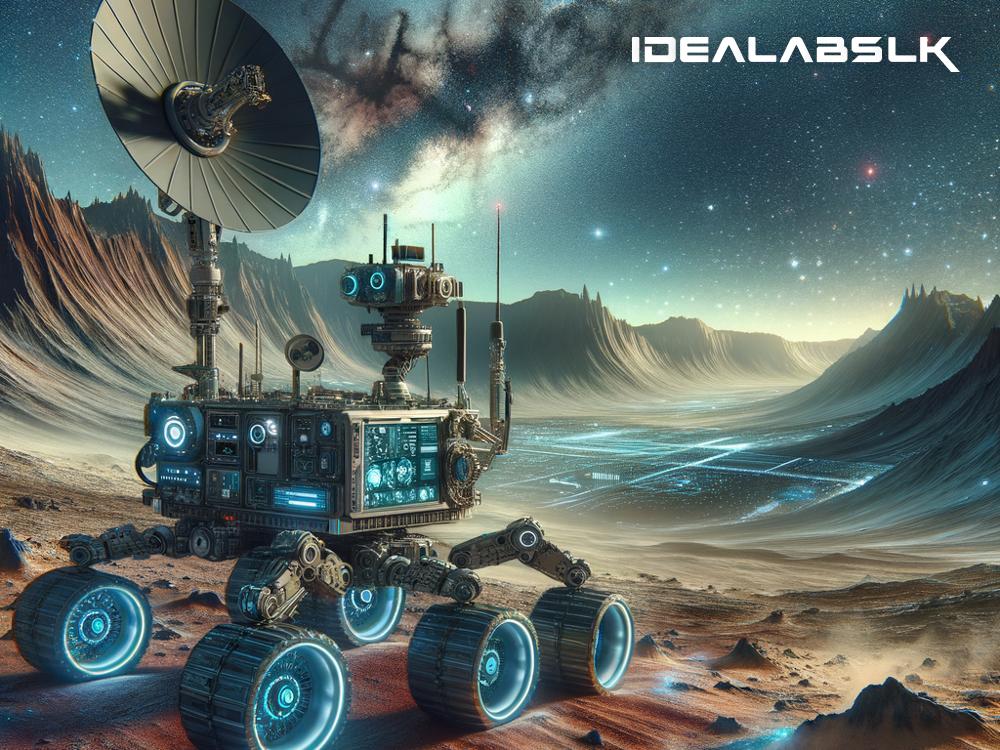How AI Is Changing the Way We Explore Other Planets: The Future of Autonomous Space Missions by 2024
Space exploration has always sparked human curiosity and imagination. From the first moon landing to the Mars Rovers, each mission pushes the boundaries of what's possible. But as we set our sights further into the cosmos, traditional methods of controlling and communicating with spacecraft are hitting their limits. Enter Artificial Intelligence (AI), the game changer that's set to revolutionize how we explore other planets. By 2024, AI technology promises to make autonomous space missions not just a possibility but a reality.
AI: The New Astronaut
Imagine a spacecraft navigating the vast expanse of space, making decisions, solving problems, and even repairing itself – all without human intervention. This isn't science fiction. It's the future of space exploration, and it's being made possible by AI.
AI, in essence, is a set of algorithms and software that allows machines to think, learn, and act like humans. But why do we need AI in space? The answer lies in the vast distances and the unknown variables of space. Signals from Earth take time to reach spacecraft and even longer as they travel farther away. For instance, a command from Earth to Mars takes about 20 minutes to transmit. In critical situations, such a delay could be disastrous.
Autonomous Navigation and Decision Making
One of the most significant ways AI changes space exploration is through autonomous navigation. Spacecraft equipped with AI can analyze their surroundings in real-time, making adjustments to avoid obstacles, land safely on uncharted terrains, and even select the best paths to take. This autonomy is crucial for exploring distant planets where direct control from Earth is unfeasible.
Moreover, AI systems can make decisions on the fly. For instance, if a rover on Mars encounters a storm, it can decide to delay a planned experiment and seek shelter instead. These decisions, based on the immense amount of data AI systems can process, were once solely in the hands of human operators millions of miles away.
AI and Scientific Discovery
AI isn't just about navigation and survival; it's also about unlocking the mysteries of the universe. Equipped with AI, rovers and probes can identify points of interest for study, such as rock formations on Mars that could contain water or signs of past life. This autonomous selection ensures we don't miss potentially groundbreaking discoveries due to the limitations of human-controlled operations.
Furthermore, AI can handle the mundane tasks, freeing up scientists to focus on analysis and theory. For instance, AI can manage routine data collection on a planet's atmosphere, while scientists on Earth interpret the findings and plan future experiments.
The Future Is Here: Missions on the Horizon
As we approach 2024, several missions are set to utilize AI in ways previously unimaginable. NASA's Mars Sample Return mission, for instance, aims to use AI for navigating and collecting samples on Mars autonomously. Similarly, the Europa Clipper mission may use AI to navigate the icy moons of Jupiter, making decisions on where to collect data to find signs of life.
Private companies are also in the race, with SpaceX and Blue Origin planning lunar landings that rely on AI for navigation and site selection. These missions promise not only to advance our understanding of space but also to test the limits of AI technology.
Challenges and Considerations
While AI holds tremendous promise for space exploration, there are challenges. One major concern is reliability. AI systems, like any technology, can fail. Ensuring these systems can operate for years in the harsh environment of space without maintenance or direct human intervention is a daunting task.
Ethical considerations are also at play. As AI becomes more autonomous, decisions that were once clearly in the realm of human judgment may shift to machines. Balancing control, ensuring safety, and defining the role of AI in critical decision-making processes are issues that need addressing.
Conclusion
The fusion of AI and space exploration is not just changing the game; it's creating a whole new playground. By 2024, autonomous space missions powered by AI will be embarking on journeys that were once deemed too risky or impossible. These missions will navigate unknown terrains, make split-second decisions, and unravel the mysteries of our universe, all while operating beyond the direct control of humans.
As we stand on the cusp of this new era, the possibilities are as limitless as the universe itself. AI is not replacing humans in space exploration; it's enabling us to reach farther, learn more, and dream bigger. The future of space exploration is autonomous, and it's closer than we think.

